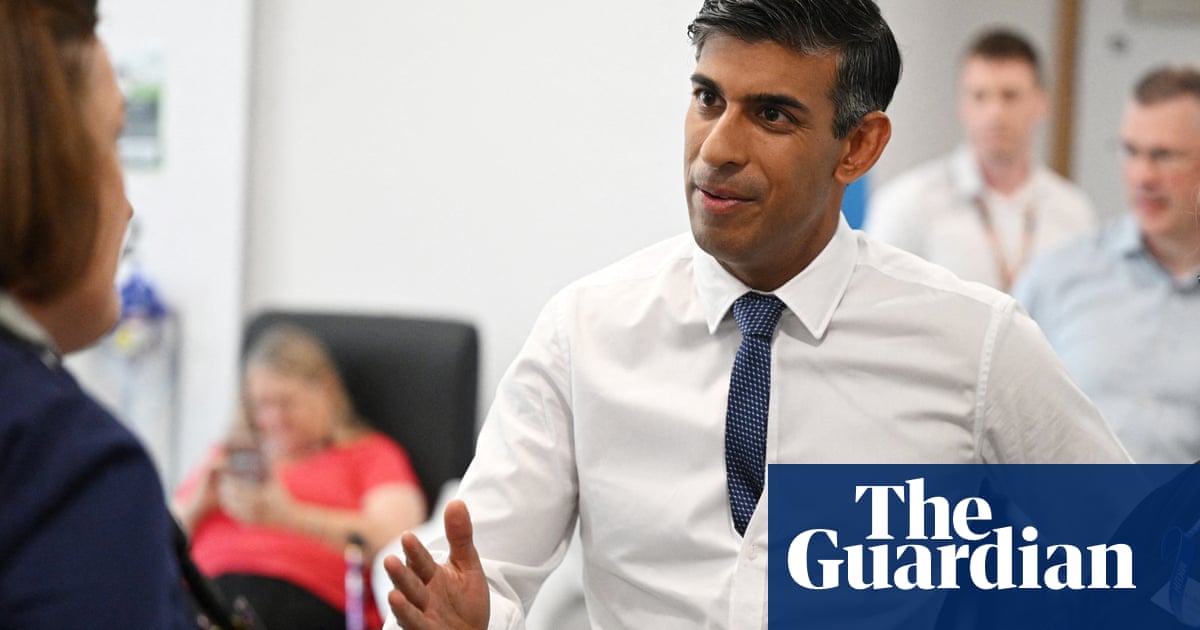
Boris Johnson may have to spend up to £40bn to try to repair NHS waiting times and end the long delays being faced by patients, according to unpublished Downing Street estimates.
Calculations for No 10 drawn up by the Cabinet Office make clear that the prime minister may have to commit anywhere between £2bn and £10bn a year for up to four years, on top of core NHS funding, to tackle what is fast becoming a major political headache for the government.
The figures, disclosed by Whitehall sources, underline the huge scale of the challenge in getting NHS waiting times back to manageable levels before the next election.
The latest NHS England performance figures, out on Thursday, showed that the total number of people waiting for hospital treatment, especially surgery, had topped 5 million for the first time. It stood at 5,122,017 in April, the highest since records began in 2007.
However, despite negative publicity, Downing Street thinks it does not need to start throwing money at the problem soon because the public are not yet “distressed” about long delays, a source with knowledge of No 10’s thinking said.
The projections were put together by the Cabinet Office as part of its work looking at the scale of post-Covid support needed in health, education and justice. Some Tories are tipping Michael Gove, the Cabinet Office minister, to succeed Matt Hancock as health and social care secretary.
The Treasury is reluctant to hand over large sums to tackle the deepening waiting list problem, sources say. NHS England plans to give Downing Street a detailed analysis soon of how long it will take to start providing care again within its existing set of targets, to help inform No 10’s thinking before the comprehensive spending review in the autumn.
The waiting list has soared by almost 425,000 people in just the past two months as people who either could not access non-Covid NHS care during the pandemic or were reluctant to do so belatedly saw their GP and were referred to hospital.
Hospitals in England managed to get back to providing 90% of pre-pandemic levels of non-urgent care in April. But they are hamstrung by personnel shortages, staff sickness linked to the strain of dealing with Covid and having fewer beds because of social distancing measures.
Of the 5.1 million, almost 400,000 people have had to wait more than a year for treatment for conditions including cancer and heart problems, hip and knee replacements and cataract removals. A small number – 2,722 – have already been waiting longer than two years. The NHS has not met its target of treating 92% of all patients on the waiting list within the supposed maximum 18 weeks since 2016.
Prof Anita Charlesworth, an NHS finances expert at the Health Foundation thinktank, said it had estimated that ministers would need to spend £6bn over three years to tackle the backlog. However, the sums needed will have gone up as a result of the second wave of Covid over the winter, which once again disrupted key services.
“The health service now has a mountain to climb. Reducing the backlog of long waits and getting the NHS into a position where waiting time standards are consistently met will need a major increase in funding,” Charlesworth said. But that would also need 5,000 extra beds, 4,100 more consultants and 17,100 additional nurses, she added, as the NHS was too under-resourced to ramp up the number of patients treated.
Richard Murray, the chief executive of the King’s Fund thinktank, said the NHS’s lack of scanners and operating theatres would severely limit its ability to increase activity.
Downing Street declined to comment on the leaked figures.
The Department of Health and Social Care said: “We’re backing the NHS with £1bn to tackle the waiting lists which have built up, providing up to 1m extra checks, scans and additional operations, and the NHS is providing £160m to trial innovative ways to accelerate elective recovery in key areas and enable more hospitals to go further, faster.
“That’s on top of an extra £7bn funding we’re giving health and care services this year.”
Chris Hopson, the chief executive of the hospitals group NHS Providers, said: “Trust leaders are deeply aware of how frustrating long waits for care are, and are doing all they can to prioritise those who need to be seen urgently.”
Ministers, NHS chiefs, medical groups and health charities are worried that lengthening waits for treatment could lead to patients’ health deteriorating and some even becoming untreatable.
The latest official figures show that there were a further 7,393 lab-confirmed cases of Covid-19 in the UK by 9am on Thursday. Seven more people have died within 28 days of testing positive, bringing the UK total to 127,867.
Public Health England data shows that infections are now rising again in every area of England, especially in the north-west.
Danny Mortimer, the deputy chief executive of the NHS Confederation, warned that hospitals might once again have to shut down normal care if the rising number of Covid infections produced a third wave that put serious pressure on them. He urged Boris Johnson to be ready to delay the lifting of restrictions as planned on 21 June.
In one positive element in the latest figures, the number of people being forced to wait at least a year for planned, non-urgent treatment in hospital has fallen from 436,127 to 385,490.
“Despite the extensive disruption to care caused by the pandemic, it’s encouraging that today’s figures show routine operations, cancer and mental health care have now all rebounded sharply,” said Prof Stephen Powis, NHS England’s national medical director.
“Average waits for non-urgent care have fallen to 11 weeks, and the number of people waiting over 52 weeks fell by more than 50,000 in April. Mental health services are back at pre-pandemic levels, and treatment rates for cancer are also now back to usual levels.”












